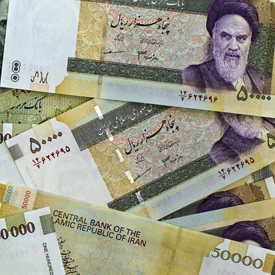UK cuts financial ties with Iran after nuclear report
After publication of a critical UN report about nuclear weapons production in Iran, Chancellor George Osborne orders all British credit and financial institutions to stop trading with Iranian banks.

The unprecedented move by the UK reflects mounting fears among the international community, including the US and Canada, over Iran‘s nuclear strategy.
The latest assessment last week by the United Nations watchdog, the International Atomic Energy Agency (IAEA), concluded that the only explanation for some alleged undercover nuclear activities is weapons production.
Tehran has vehemently denied its nuclear programme is designed for anything other than civil nuclear fuel.
But George Osborne said today: “We believe that the Iranian regime’s actions pose a significant threat to the UK’s national security and the international community.
“Today’s announcement is a further step to preventing the Iranian regime from acquiring nuclear weapons,” he added.
The Treasury said that the move would damage Iran’s nuclear programme, as banks play a “crucial role” in the way it operates.
A ban on transactions with all Iranian banks – including the Central Bank of Iran – will also prevent UK institutions being “unknowingly used by Iranian banks for proliferation-related transactions”, said a spokesman.
Military action not ruled out
Foreign Secretary William Hague has refused to rule out possible military action in the future if the stand-off continues.
He said that the IAEA report for the UN provided further evidence and more detail about “possible military dimensions of the Iranian nuclear programme”.
“We have consistently made clear that until Iran engages meaningfully, it will find itself under increasing pressure from the international community,” said Mr Hague.
“The swift and decisive action today co-ordinated with key international partners is a strong signal of determination to intensify this pressure.”